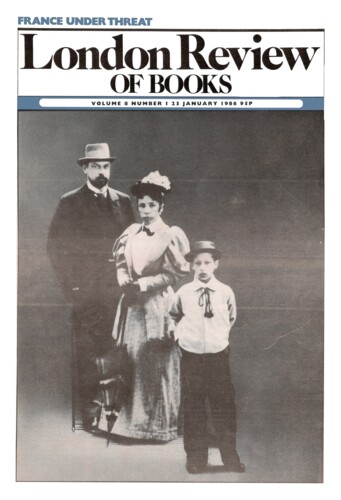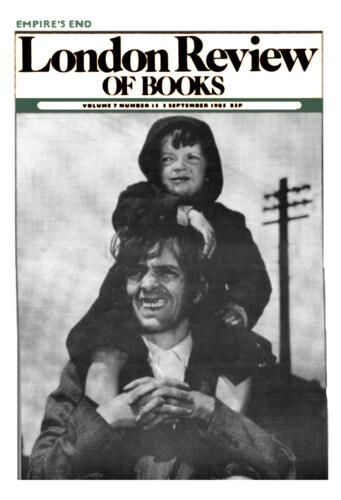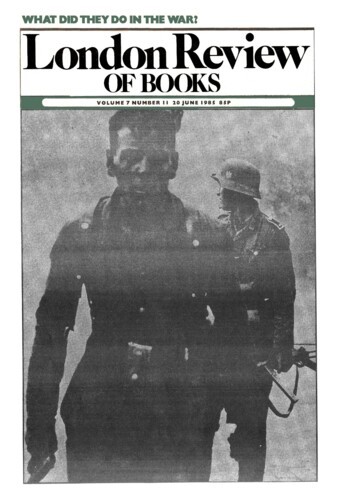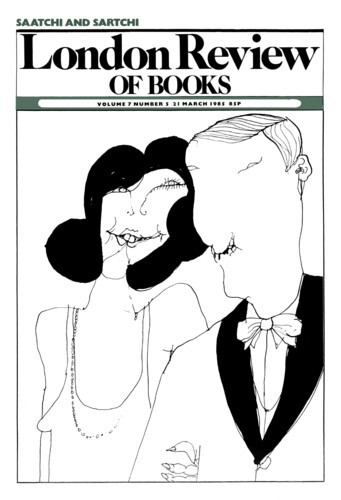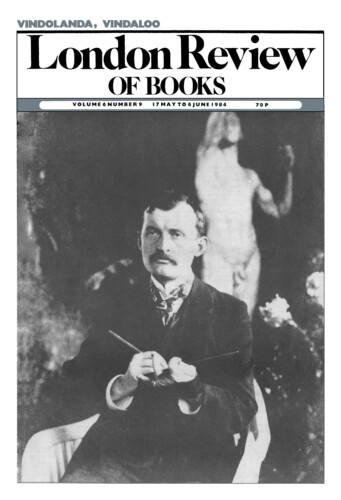Outbreak of Pleasure
Angus Calder, 23 January 1986
Towards the end of the Second World War, the Common Wealth Party produced a striking leaflet – ‘Again?’ – to play on the widespread fear among British voters that victory over Nazism was merely the prelude to a return to mass unemployment at home and continued international insecurity. The ‘old order’ had failed. A ‘new society’ was necessary. ‘The 60,000,000 colonial peoples, fighting against exploitation’, were ‘our allies in the struggle for a new society’ and must be given self-government at the earliest opportunity. Meanwhile, the war itself was ‘part of a world revolution of the common man, aimed at a new world of plenty and security’.’
